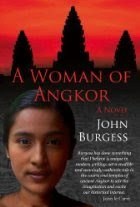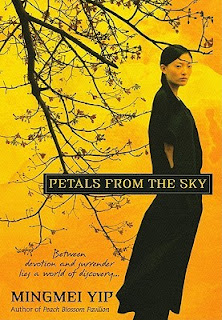 |
| The Demon Who Peddled Longing |
Published November 21, 2014; Underground Voices
Genre: multicultural fiction, literary fiction
Opening sentences: Sometime in the night, the woman woke. The wind had died down and the rain had stopped and now she could hear something bang against the piles of the house. Sitting up in her cot, she listened.Nineteen-year-old Nam of Vietnam, in the Plain of Reeds, takes a long journey after he is left homeless and without family when his uncle's fishing boat sinks in an accident, killing all the others on board. Nam finds employment with two different women in the flooded plain, fishing for them to earn his keep. He moves on to the coast and the seaside, in a determined quest to find the two brothers who had assaulted and murdered his cousin, his first love. His memory of his cousin drives him to try to exact revenge.
Lyrically descriptive, the book takes you to an unfamiliar land that gradually becomes more and more real. I was fascinated not only by the flooded plain of reeds, the taxing lives of the river fishermen, the intriguing preparation of fish and food, but also by the religious beliefs and the beliefs in spirits and ghosts.
This is almost a coming of age story as much as an odyssey, and a story of a young man's unholy pilgrimage to seek retribution for the wrong done to the young woman, his cousin. How he changes and matures toward the end of his journey is an intriguing part of the novel.
I enjoyed the writing, the plot, characterizations, and the cultural context. I heartily recommend The Demon Who Peddled Longing for its insight into character as well as for its fascinating story and setting.
Khanh Ha is the author of Flesh (2012, Black Heron Press) and The Demon Who Peddled Longing (November 2014, Underground Voices). He is a three-time Pushcart nominee and the recipient of Greensboro Review’s 2014 Robert Watson Literary Prize in Fiction. His work has appeared in Waccamaw Journal, storySouth, Greensboro Review, Saint Ann’s Review, Permafrost Magazine, Tayo Literary Magazine, Printer's Devil Review, Mount Hope, Thrice Fiction, and other fine magazines. Visit him at http://www.authorkhanhha.com
twitter username
Facebook: http://www.facebook.com/authorkhanhha
Thanks to Virtual Author Book Tours and the author for a review galley of this book. See more reviews and the tour schedule.
























